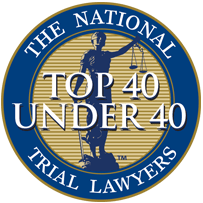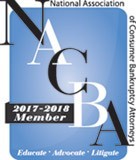Chapter 7 bankruptcy is the quickest way to obtain debt relief and begin rebuilding your credit. Also known as liquidation bankruptcy, this chapter discharges most of your debt and allows you to liquidate your assets to repay your creditors. If you qualify for Chapter 7, chances are you won’t have significant assets to liquidate — and you will usually get to keep important property like your house, car, and savings/retirement accounts. A Chapter 7 bankruptcy lawyer can help you understand how the process works.
Information on this page:
What Are the Benefits of Chapter 7 Bankruptcy?
Filing Chapter 7 bankruptcy allows you to eliminate all of your unsecured debts, meaning debts that are not backed by physical property such as your home or car. These include credit card debts, medical bill debts, and lawsuit judgments. However, you will not be able to discharge secured debts such as student loans or alimony and child support debts.
Chapter 7 is also relatively fast, usually resolving within four to six months. You get to keep your future income, and there’s no repayment plan to deal with over the next few years. Best of all, it gives you a fresh start as well as allows you to rebuild your credit over the next few years.
While Chapter 7 bankruptcy is not for everyone, it offers many unique advantages. They include the following:
- Speed: While a Chapter 13 bankruptcy can take up to five years, most Chapter 7 bankruptcies take a matter of months.
- No Payment Plan: You will not have to live with a rigorous payment plan under Chapter 7. Instead, proceeds from the liquidation of your nonexempt assets will pay off your debts. If you do not have nonexempt property, your creditors will receive nothing.
- You Can Discharge More Debt: You will not face limits on the amount of debt you can discharge, like you would in a Chapter 13 bankruptcy.
What Assets Are Exempt in a Chapter 7 Bankruptcy?
While your exempt assets will vary, depending on your circumstances, they may include:
- Part of the value of your home or residence (sometimes called your homestead)
- Unpaid wages
- A portion of your personal property, such as clothing, furniture, and other goods
- Your retirement funds, including your pension,401(k), and IRA accounts
- Social Security benefits
- Workers’ compensation benefits
- Unemployment benefits
- Other public benefits
- Insurance policies
- Tools related to your profession or job, up to a specific value
If you are concerned that you will lose a valued asset or piece of property during a Chapter 7, consult with an experienced attorney.
Who Is Eligible for Chapter 7?
If you make below the median household income in your state, you automatically qualify for Chapter 7 bankruptcy. In Alabama, the median household income is $61.512. In Georgia, the median household income is $67,983. These numbers, however, are subject to change each year.
If you make above the median household income, you can still qualify for Chapter 7 bankruptcy if you pass the means test. The means test weighs your monthly expenses against your monthly income. If you don’t have enough disposable income to repay your debts, you will qualify. If your income is too high or you don’t pass the means test, you can still file for Chapter 13.
How Does Chapter 7 Work?
The process is fairly straightforward — your Chapter 7 bankruptcy lawyer will petition the court, provide your financial information, list your debts, and meet with your creditors. Your creditors can raise objections, but usually, they don’t bother. If all goes well, your debts will be discharged within a few months. Typically, most of a Chapter 7 bankruptcy occurs out of court, and you will not have to attend many hearings.
Once the judge grants your petition to file for bankruptcy, they will appoint a trustee to your case. A trustee manages much of the process. If the bankruptcy trustee finds any assets that you cannot protect under state exemptions, they will liquidate those assets to repay your creditors. Your lawyer will also monitor the trustee’s actions, ensuring that they comply with federal bankruptcy laws and regulations.
Once your nonexempt assets are liquidated and your creditors are paid, the judge will typically discharge your remaining dischargeable debts and close your bankruptcy case.
An Experienced Chapter 7 Bankruptcy Lawyer Can Help
If you’re having a tough time managing your debt, don’t try to tackle the situation yourself. The decision to file bankruptcy is a weighty one. An experienced Chapter 7 bankruptcy lawyer at Carmichael Law Group can help.
We will advise you of your options and help you determine which type of bankruptcy best suits your circumstances. We can also help you file your paperwork with the court and guide you through the bankruptcy process. To learn more about our services, contact us today. We have offices in Alabama and Georgia, and we offer confidential, no-risk consultations.




